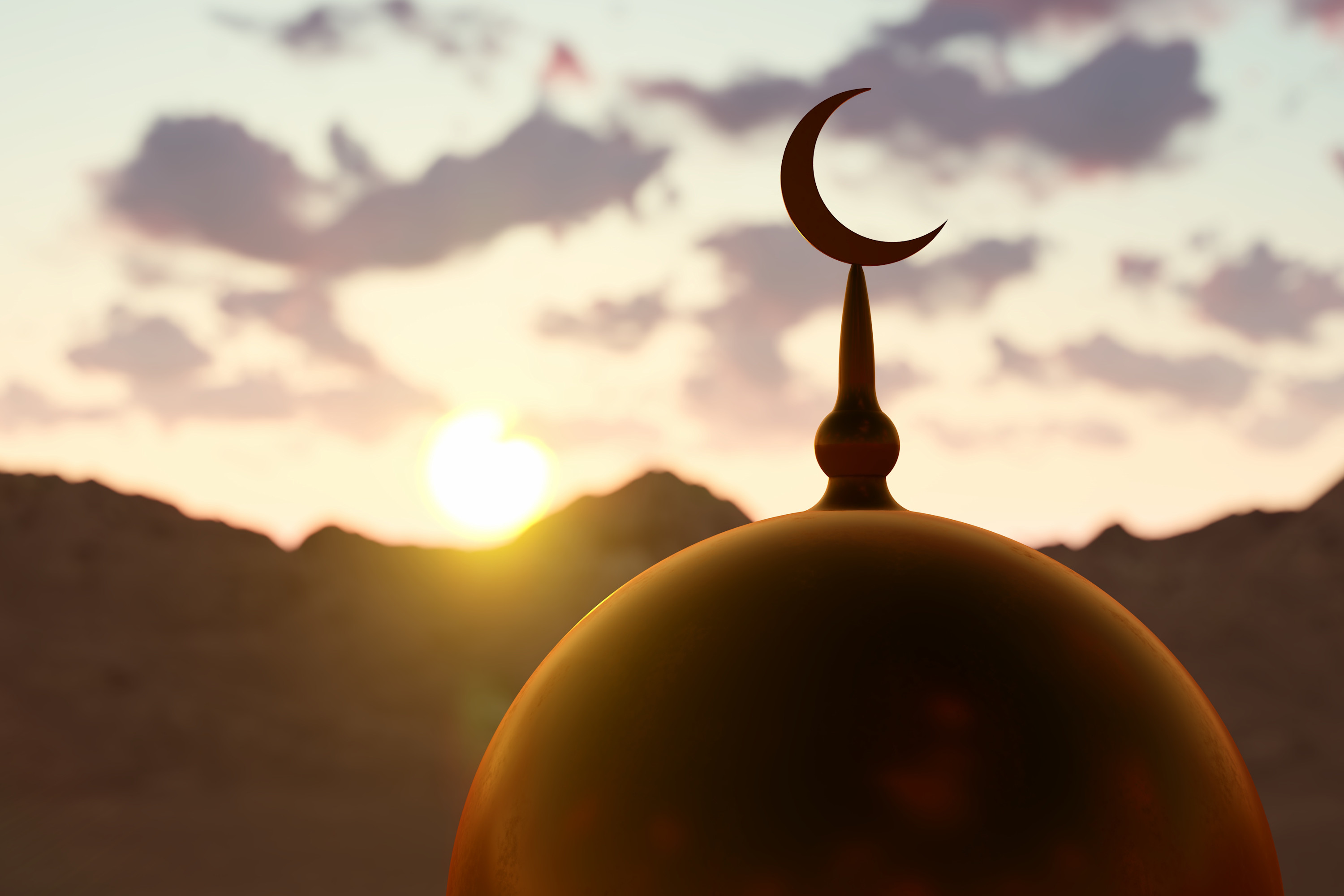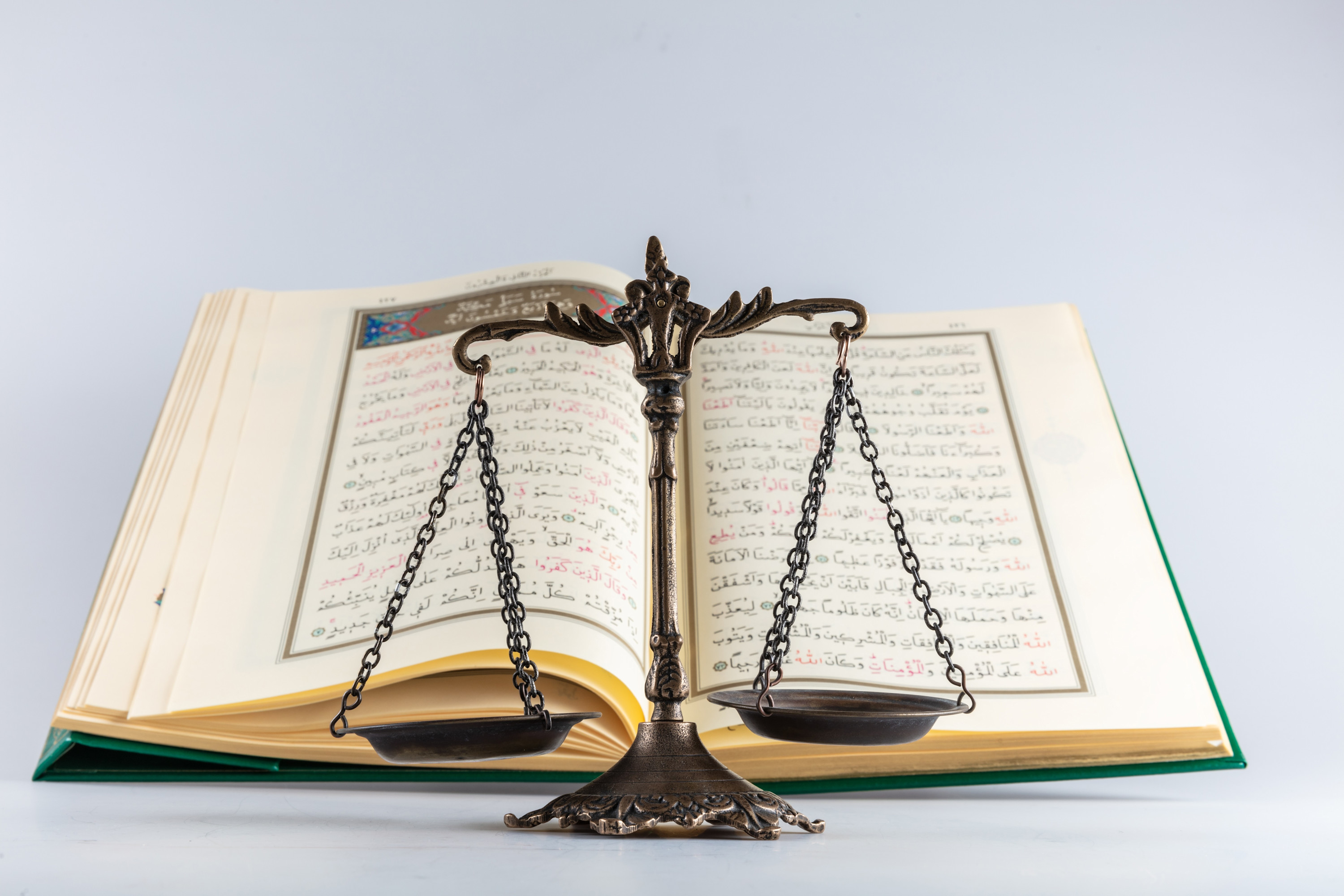
The Six Pillars of Faith
What Are the Foundational Islamic Beliefs We Adhere To? In Islam, the Six Pillars of Faith represent the essential beliefs that form the foundation of Muslim theology and creed. These pillars encompass the core tenets of Islamic faith and serve as the basis for a Muslim's understanding of the universe, God, prophethood, destiny, and the afterlife.
The Six Pillars of Faith are: belief in Allah (God), belief in the angels, belief in the revealed scriptures, belief in the prophets and messengers, belief in the Day of Judgment, and belief in divine decree (Qadar).
Belief in Allah emphasizes the concept of monotheism, acknowledging Allah as the one and only God, creator, and sustainer of the universe. Belief in the angels affirms the existence of celestial beings created by Allah to carry out His commands and serve as intermediaries between Him and humanity. Belief in the revealed scriptures acknowledges the divine origin and authority of the Quran, as well as the previous scriptures revealed to prophets. Belief in the prophets and messengers recognizes the role of chosen individuals throughout history who received divine revelations and conveyed God's message to humanity. Belief in the Day of Judgment underscores the belief in the afterlife, accountability, and divine justice, where all individuals will be resurrected and held accountable for their actions. Lastly, belief in divine decree acknowledges Allah's predestination and knowledge of all things, including human actions and events. Together, these Six Pillars of Faith provide a comprehensive framework for Muslim belief, guiding adherents in their spiritual journey and moral conduct.
1. Allah (Glory to Him, the Exalted)

In Islam, Allah is the Arabic term for God. Muslims believe that Allah is the one and only God, the creator and sustainer of the universe, and the ultimate source of all existence. Here are some key aspects of the Islamic understanding of Allah:
Oneness (Tawhid): The concept of Tawhid is central to Islamic theology, emphasizing the absolute oneness and uniqueness of Allah. Muslims believe that Allah has no partners, associates, or equals, and there is nothing comparable to Him.
Attributes: Allah is described in the Quran with numerous attributes that reflect His perfection and majesty. These include attributes such as All-Powerful (Almighty), All-Knowing, All-Wise, Merciful, Compassionate, Just, and Loving. Here is the series of the attributes of Allah:
Transcendence: Muslims believe that Allah is transcendent and beyond human comprehension. While Allah is merciful and compassionate, His mercy and attributes are also beyond human understanding.
Creator and Sustainer: Allah is believed to be the creator of the heavens and the earth and everything therein. He sustains the universe and controls all aspects of existence according to His divine will.
Revealer of Guidance: Muslims believe that Allah has communicated His guidance to humanity through various prophets and scriptures, culminating in the final revelation, the Quran, sent to the Prophet Muhammad (peace be upon him).
Judge and Sovereign: Allah is viewed as the ultimate judge who will hold all individuals accountable for their actions on the Day of Judgment. He is also considered the sovereign ruler of the universe, with absolute authority and control over all affairs.
Accessible through Worship: Muslims worship and submit to Allah through acts of devotion, such as prayer (Salah), fasting (Sawm), charity (Zakat), and pilgrimage (Hajj). These acts of worship are central to strengthening the believer's relationship with Allah.
In summary, Allah is the central figure in Islam, representing the ultimate reality and source of guidance for Muslims. Belief in Allah's oneness, attributes, and sovereignty forms the foundation of Islamic faith and practice.
This short video speaks about Allah the almighty and why we need to worship Him
2. The Angels
What is the Unseen Realm?

In Islam, the unseen realm, known as "Al-Ghaib" in Arabic, refers to aspects of existence that are beyond human perception and comprehension. It encompasses various metaphysical concepts and phenomena that are not directly observable or tangible in the physical world. Here are some key elements of the unseen realm in Islam:
Angels (Mala'ika): Angels are beings created by Allah from light and are entrusted with various duties in the universe. They exist in the unseen realm and carry out tasks such as delivering divine messages, recording human deeds, and worshiping Allah.
Jinn: Jinn are another category of beings created by Allah, but unlike angels, they possess free will and can choose to obey or disobey Allah. Jinn inhabit the unseen realm and coexist with humans in the world. They are believed to be created from smokeless fire and are capable of interacting with humans in various ways.
Paradise (Jannah) and Hellfire (Jahannam): Paradise and Hellfire are realms in the unseen where individuals will be rewarded or punished based on their deeds in the earthly life. Paradise is described as a place of eternal bliss and enjoyment, while Hellfire is a place of punishment and torment. Learn about Jannah and Jahannam in this series
Day of Judgment (Yawm al-Qiyamah) : The Day of Judgment is a major event in Islamic eschatology, where all individuals will be resurrected and held accountable for their actions. It is a day when the unseen becomes manifest, and each person's deeds will be weighed and judged by Allah.
Divine Decree (Qadar): The concept of Qadar encompasses Allah's preordained plan and knowledge of all events, including those in the unseen realm. Muslims believe in Qadar as part of their faith, understanding that everything that occurs is within the divine wisdom and decree of Allah.
Supernatural Phenomena: Various supernatural occurrences, miracles, and signs from Allah are also considered part of the unseen realm. These may include prophetic miracles, divine interventions, and other phenomena that defy natural laws. As an example, how the Quran is a miracle
The Unseen Knowledge of Allah: Allah possesses knowledge of the unseen realm that is beyond human comprehension. Muslims believe in the omniscience of Allah, recognizing that He has knowledge of everything, including the hidden aspects of existence.
Overall, the unseen realm in Islam encompasses a vast array of metaphysical concepts and phenomena that play a significant role in shaping Islamic belief and practice. It underscores the importance of faith, trust in Allah's wisdom, and adherence to divine guidance as revealed in the Quran and Sunnah.
3. The Divine Books
What are the Holy Books?

In Islam, several holy books are recognized, with the Quran being the most prominent and revered. Here are the main holy books in Islam:
The Quran (Al-Quran): The Quran is considered the central religious text of Islam, believed to be the literal word of Allah (God) as revealed to the Prophet Muhammad (peace be upon him) over a period of approximately 23 years through the Angel Gabriel (Jibreel). It serves as a comprehensive guide for Muslims in matters of faith, worship, morality, and daily life. The Quran consists of 114 chapters (Surahs) containing verses (Ayahs) in Arabic and covers various topics, including theology, law, ethics, and guidance for personal conduct.
The Torah (Tawrat): Muslims believe that the Torah was revealed to the Prophet Moses (Musa) as guidance for the Israelites. While the Torah is not identical to the Pentateuch found in the Hebrew Bible, Muslims regard it as a holy scripture containing divine guidance and laws. The Quran affirms the Torah's importance but also mentions that it has undergone alterations over time.
The Psalms (Zabur): Muslims believe that the Psalms were revealed to the Prophet David (Dawud) for the purpose of worship and guidance. While not as prominent in Islamic tradition as the Quran, the Psalms are still considered sacred scripture.
The Gospel (Injil): Muslims believe that the Gospel was revealed to the Prophet Jesus (Isa) as a message of guidance and salvation for the people of his time. However, the Injil mentioned in the Quran is not synonymous with the four Gospels found in the New Testament of the Christian Bible. Instead, it is believed to be the original revelation given to Jesus, which Muslims assert has been distorted over time.
While the Quran is considered the final and complete revelation, Muslims also recognize the previous scriptures as divine revelations sent by Allah to guide humanity. However, they believe that these earlier scriptures have undergone alterations and changes over time, necessitating the need for the final revelation in the form of the Quran. Therefore, while Muslims respect these earlier scriptures, their ultimate authority lies in the Quran.
In this detailed essay, readers will learn of the extensive lengths Muslim scholars underwent throughout the centuries to preserve the Holy Quran.
4. The Prophets
Who were the Prophets?
In this informative Ramadan series, Mufti Menk covers important lessons from the lives of the Prophets of Allah.
Who was our Prophet Muhammad ﷺ and what must we affirm? From a Muslim's perspective, Prophet Muhammad (peace be upon him) is revered as the final prophet and messenger of Allah (God) in Islam. Here are some key aspects of his life and role in Islamic belief:
Prophet and Messenger: Muslims believe that Muhammad ﷺ was chosen by Allah to be His final prophet and messenger, sent to convey His message to humanity. He is considered the Seal of the Prophets, concluding the line of prophethood that began with Adam and included figures like Noah, Abraham, Moses, and Jesus (peace be upon them all).
Revelation of the Quran: Muslims believe that Muhammad ﷺ received divine revelation in the form of the Quran, the holy book of Islam, over a period of approximately 23 years through the Angel Gabriel (Jibreel). The Quran is believed to be the literal word of Allah, preserved in its original form without alteration.
Exemplar of Morality: Muhammad ﷺ is viewed as the perfect example of piety, humility, compassion, and moral character. His life serves as a model for Muslims to emulate in their personal conduct, interactions with others, and devotion to Allah.
Leader and Statesman: In addition to his role as a prophet, Muhammad ﷺ was also a leader, statesman, and reformer. He established the first Muslim community in Medina, where he implemented principles of justice, equality, and social welfare.
Mercy to Mankind: Muhammad ﷺ is often referred to as "Rahmatan lil-Alamin," which means "Mercy to the Worlds." His teachings emphasize compassion, forgiveness, and concern for the well-being of all humanity, regardless of faith or background.
Finality of Prophethood: Muslims believe that Muhammad's prophethood marked the completion and perfection of divine guidance for humanity. They reject the notion of any future prophets after him.
Overall, Prophet Muhammad ﷺ holds a central and revered position in Islam as the messenger of Allah, whose life and teachings continue to inspire and guide millions of Muslims worldwide. His legacy is celebrated through adherence to the Quran and the Sunnah (his sayings, actions, and approvals), which form the cornerstone of Islamic faith and practice.
In this Ramadan video series, join Shaykh Omar Suleiman as he takes us through a journey of discovering the character and qualities of our Prophet Muhammad ﷺ.
In this detailed essay, readers will learn of the extensive lengths Muslim scholars underwent throughout the centuries to preserve the legacy and tradition of the Prophet Muhammad ﷺ .
Can We Trust Hadith Literature? Understanding the Processes of Transmission and Preservation
5. The Day of Judgement
What is the Final Hour?

In Islam, the Day of Judgment, known as Yawm al-Qiyamah or Yawm ad-Din, is a fundamental belief concerning the final reckoning and resurrection of all human beings. It is a significant event in Islamic eschatology (the study of the end times) and holds immense importance in the faith. Here are some key aspects of the Day of Judgment in Islam:
Resurrection: On the Day of Judgment, all human beings, from the beginning of creation until the end of time, will be resurrected from their graves to stand before Allah for judgment. This resurrection is a physical and spiritual event, where every individual is brought back to life.
Reckoning: Every person will be held accountable for their deeds in this life. Allah will judge each individual based on their actions, intentions, and beliefs. Good deeds will be rewarded, and sins will be accounted for.
Balance of Deeds: The deeds of every person will be weighed on a scale. Those with good deeds heavier than their sins will attain salvation, while those with sins outweighing their good deeds will face punishment.
Intercession: The concept of intercession exists in Islam, where certain individuals, such as prophets or righteous people, may intercede on behalf of others to plead for mercy from Allah. However, Allah's ultimate decision remains final.
Paradise and Hell: Based on their judgment, individuals will be assigned either to Paradise (Jannah) or Hellfire (Jahannam). Paradise is described as a place of eternal bliss, while Hellfire is a place of punishment for those who rejected faith or committed grave sins.
Eternal Life: After the Day of Judgment, believers who enter Paradise will experience eternal happiness and closeness to Allah, while those in Hellfire will endure eternal punishment.
The belief in the Day of Judgment serves as a reminder of accountability, justice, and the ultimate reality of the afterlife in Islam. It motivates believers to lead righteous lives and strive for goodness, knowing that they will be answerable for their actions on the Day of Judgment.
In this Ramadan video series, Shaykh Omar Suleiman gives us a glimpse into the eternity we are building. Learn what worldly actions will ease our reckoning and light our way on the path to Paradise.
6. Destiny and Divine Decree
What is Destiny?

In Islam, destiny, often referred to as Qadar (or Qadr), encompasses the belief in the divine decree or predestination set by Allah. The concept of Qadar is a fundamental aspect of Islamic theology, and it encompasses several key beliefs:
Belief in Allah's Knowledge: Muslims believe that Allah possesses perfect knowledge of all things, past, present, and future. Nothing occurs without His knowledge.
Belief in Allah's Will: Allah's will is absolute, and He has ordained everything that happens in the universe according to His divine plan.
Belief in Allah's Decree: Allah's decree encompasses everything that occurs in the universe, including human actions and events. Nothing happens except by the will and decree of Allah.
Belief in Human Responsibility: While Allah has decreed all things, humans are still accountable for their actions. Muslims believe in free will within the framework of Allah's divine decree. Humans have the ability to make choices, but those choices are ultimately within the scope of Allah's knowledge and decree.
Belief in Divine Wisdom: Muslims believe that Allah's decree is based on His infinite wisdom and knowledge. Even if humans may not understand the reasons behind certain events or circumstances, they trust in Allah's wisdom and submit to His will.
In summary, destiny in Islam is the belief that Allah has decreed everything that happens in the universe according to His divine plan and knowledge. While humans have free will, their actions are ultimately within the scope of Allah's decree, and they are accountable for their choices and deeds.
In this Ramadan video series, Shaykh Omar Suleiman explains the intricacies of Predestination in Islam and how Muslims should accept God's Divine Decree.
Tags:
Tags:

Admin
Shahada services muslims to support them in the endeavor of seeking knowledge and connecting with their ummah. Shahada ai allows users to ask questions relating to Islam and receive answers backed by reliable sources of knowledge, including Quran, Hadith, Sirah, and Tafsir sources.




